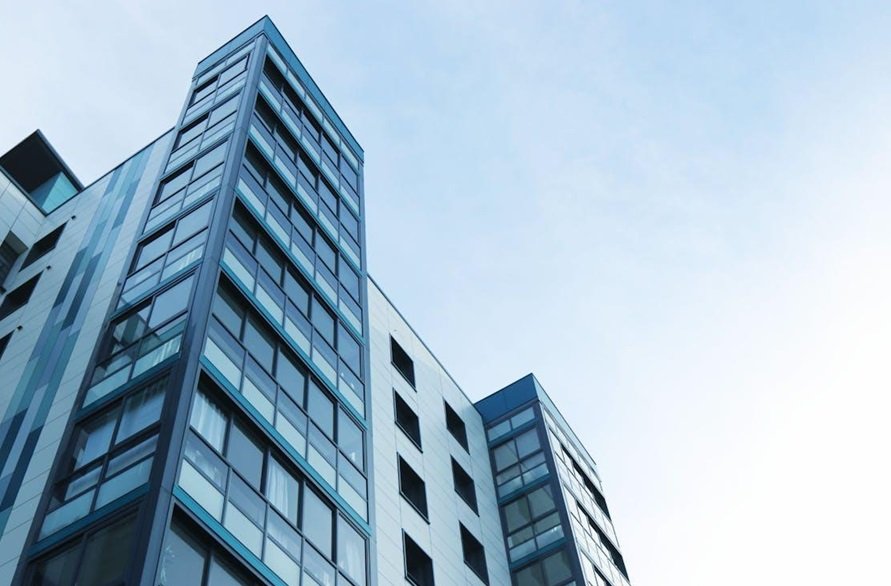Tips for Managing a Commercial Building
These are some of the things that anyone who undertakes management of a commercial building will encounter especially if the building is located in Florida. The climate of the state remains fairly humid with high temperatures, heat, another stress factor that may exert much pressure on building structures and systems due to frequent storm. Moreover, the vast field of operation areas across different forms of commercial buildings in the region is diverse; therefore, commercial building construction has to be as diverse and maintain high standards. Proper management is not only responsible for the safety and well-being of residents, but also serves to maximize the potential of the property in terms of appealing to potential tenants and preventing deterioration. Below are some key guidelines for overall building management for commercial premises.
1. Regular Maintenance
Maintenance is the key when it comes to dealing with a commercial building as it involves making minor fixes to cater for wear and tear. To avoid such mishaps, it is wise to conduct intervals checks and service the building’s mechanicals without waiting for a system failure. Some of the areas of concern that should be maintained includes the heating, ventilation and air conditioning systems, water management and electrical infrastructure.
GVACs must be checked and maintained to ensure they are functioning properly, and the recommended schedule involves checking at least a half-yearly basis. This is not only advantageous in that it expands the working life of the equipment but also aids in the preservation of suitable climate for the residents. People ought to get their plumbing checked because issues such as water leaks and formations of burst pipe may be detected during the inspection process that helps in preventing water damage and formation of mold. Electrical systems require constant examination; they may trigger fire incidents if not well checked and agrees with safety measures recognized in the society.
2. Roof Care and Maintenance
The roof is one of the most critical parts of a commercial building. Regular inspections and maintenance are essential to prevent leaks and structural damage. In Florida, the roof must withstand heavy rains, strong winds, and even hurricanes. For residents of Tampa commercial roof replacement is a convenient option for extending the lifespan of the building and ensuring it remains safe and secure.
Daily, weekly or monthly roof inspection can help managers detect early signs of deficiencies to the roofs such as missing shingles, cracks and water accumulation. People therefore need to address these problems early enough in order to avoid having to dig into their pockets further later on. And lastly, using the best roofing materials and properly installing them can go a long way in increasing the length of the roof’s life and efficiency.
3. Energy Efficiency
Improving energy efficiency in a commercial building can lead to significant cost savings and environmental benefits. Simple steps like upgrading to energy-efficient lighting and HVAC systems can make a big difference. Regularly maintaining these systems ensures they operate at peak efficiency, reducing energy consumption.
A well-insulated building can also be an efficient one because it can manage to maintain constant indoor temperatures for longer periods and, therefore, requires less intervention by HVAC systems. Sealing gaps that allow air to come into the building or go out, in the form of energy-efficient windows and doors also help in retaining heat during the cold season and minimizing it during the warm times of the year. Other strategies that can add to the effort include nudging tenants to apply proper energy usage behaviors including; Switch off lights and some related equipment when not needed.
4. Security Measures
Protection of commercial buildings is very important and any informality prevented at all costs. Security measures put in place should act as a barrier towards criminal activities while reducing security threats and therefore satisfy the tenant or any visitor. This entails the security cameras, the alarm systems, and locks among other security features.
Even when the specialised security staff does its best to work continuously and actively detect potential risks, it is recommended to conduct such security inspections on a regular basis. There are also significant security issues and concerns and this means that all the building occupants need to be informed of security measures and precaution to be followed. Giving training in emergency procedure can make it possible for everybody to practice on how they should respond on case of a security threat or any other incidents that may occur.
5. Tenant Relations
Maintaining good tenant relations is crucial for the smooth operation of a commercial building. Effective communication can help address tenant concerns promptly and prevent minor issues from escalating. Regular meetings with tenants can provide an opportunity to discuss any problems and gather feedback on building management.
Returning calls and letters from tenants requesting for maintenance for example, or any other concerns displayed by them in order to gain their confidence. People are able to accomplish numerous objectives, more so when they are satisfied with how things are done through the use of a tenant portal where occupants can be able to make their requests and check the status of the same. They pay their rents on time, stay longer in the units without requesting for a transfer to another Apartment, thus reducing the vacancies.
6. Emergency Preparedness
Every business should ensure that it has a plan in case of emergency, especially in commercial buildings. These necessitate the development of effective and detailed contingency measures that encompass various activities like fire outbreaks, calamities and even health complications. It is possible to prevent numerous casualties, and damages through the update of such plans and making sure that these tenants are well in ymformed.
Emergency Drill in Particular It is important to carry out emergency drill as they assist the tenants in understanding what to do and where to go in the event of an emergency. These drills ought to be conducted in relation to the type of disaster that would likely occur and should involve such elements as how to escape, phone numbers to call, and where to seek refuge. Some of the key considerations include the location of emergency supplies including first aid kits, fire fighters, emergency lights among others in a proper and convenient condition.
7. Legal Compliance
Ensuring that the building adheres to certain legal requirements and following the rules and regulations of the country that you are in is important for the management of the commercial building. The officials at the construction site agree with the fact that periodic visits by competent persons enable the building to be in compliance with safety and health requirements. Failure in those standards, in particular could result to fines, legal implications and most important tenant danger.
Yet, the building managers must ensure that they update themselves on such issues like changes in the regulations and codes that may apply to their buildings in the future. This comprises of issues such as fire safety measures regulating, accessibility codes, and facilities and environmental regulations. It is essential to note that legal issues can be complex, especially when the business is operating in more than one country. Consulting with legal professionals or attorneys is useful in such cases to understand the complexities of the legal system when it comes to compliance and to review and update all necessary documentation as needed.
8. Financial Management
The following paper will outline how the managerial aspects and in particular the financial management aspects are fundamental to the preserving the value of a commercial building. This relates to estimations on recurrent expenditure, breakage and overlook charges and improvements. Since the expenses are recorded for each building, daily, weekly, monthly, or annually, it is easier to determine the financial status of the building.
Managers should also also devise long-term strategies and incorporating capital expenditure that can add higher value to the property. This involves efficiency in usage of energy as well as physical facility enhancements, updating the areas of the building that are shared, and many more. Creating an emergency fund also helps when there are some endemic problems that may finally come up, as it provides money to avoid overwhelming and settlement pressures.
9. Cleaning and Sanitation
It is extremely relevant to keep the hygiene and sanitation levels high as it concerns tenants’ health and building credibility. Daily, weekly and monthly cleaning schedules covering common areas, rest rooms and other highly trafficked areas are necessary so as to maintain a professional appearance of a building as well as ensuring cleanliness.
Sanitation protocols should be stringently followed due to prevailing health concerns in the community. There is also a way to avoid spreading illnesses through cleanliness; cleaning products and the personnel that uses it should be effective. Sanitizing the common parts or providing hand sanitisers to the tenants can also go a long way in enhancing the status of healthiness too.
10. Landscaping and Exterior Maintenance
Generally, the appearing façade of the commercial building is a key determinant of a good first impression among the public. Some of the tasks performed when landscaping the area can include; mowing of the lawns, trimming of the greenery, pruning or spraying of trees and flowers among others that can enhance the appearance of the grounds. These include the aspect of moving around in the compound, washing the car, watering the flowers, weeding and other gardening activities.
Building later involvesa variety of exercises which includes checking the exterior walls cleanliness of the windows and doors. Issues, such as paint, windows or sign fading, breaking or chalking must also be tended to because they affect the building’s appearances and functionality. There are areas where it is advisable to make professional help in pressure washing and window cleaning which will also add to the aesthetic value of the building.
Conclusion
Management of a commercial building is a delicate process, which entails integration of some key traits, planning and hard work. Every factor such as maintenance, energy consumption, managing relations with occupants, understanding and being prepared for incidences, are paramount, in solidative effort to keep the building as efficient, safe and pleasing to the occupants as possible. Applying all of these tips helps not only to assure property is safe from vandals, thieves, and other attributable parties, but also secure the residential or commerсial space for the tenants which will be beneficial for the building’s manager and improve the general state of the property in the long run.




Post Comment